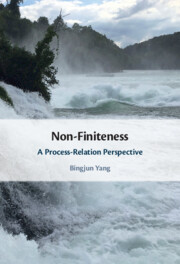Book contents
- Non-Finiteness
- Non-Finiteness
- Copyright page
- Contents
- Figures
- Tables
- Preface
- Acknowledgements
- Symbols and Abbreviations
- Leipzig Glossing Abbreviations
- 1 Introduction
- 2 Non-finiteness in the Literature
- 3 Theoretical Foundations
- 4 Basic Process Relations as One Solution to the Controversy
- 5 Non-finiteness as the Bridge for Process Compression
- 6 Revisiting the Controversial English Constructions with Non-finiteness
- 7 Revisiting the Controversial Chinese Constructions with Non-finiteness
- 8 Conclusion
- References
- Index
1 - Introduction
Published online by Cambridge University Press: 21 April 2022
- Non-Finiteness
- Non-Finiteness
- Copyright page
- Contents
- Figures
- Tables
- Preface
- Acknowledgements
- Symbols and Abbreviations
- Leipzig Glossing Abbreviations
- 1 Introduction
- 2 Non-finiteness in the Literature
- 3 Theoretical Foundations
- 4 Basic Process Relations as One Solution to the Controversy
- 5 Non-finiteness as the Bridge for Process Compression
- 6 Revisiting the Controversial English Constructions with Non-finiteness
- 7 Revisiting the Controversial Chinese Constructions with Non-finiteness
- 8 Conclusion
- References
- Index
Summary
With a sketch of the debate over the finite/non-finite distinction, Chapter 1 introduces the motivation, purpose, research questions, methodology and L10layout of this study. After pointing out the controversy over non-finiteness in linguistics, four research questions are raised: In what way is the finite and non-finite distinction universal? In what context can non-finiteness be positioned and identified? How does non-finiteness function for inter-clausal connectivity? How will the controversial issues of non-finiteness in English and Chinese be dealt with?
- Type
- Chapter
- Information
- Non-FinitenessA Process-Relation Perspective, pp. 1 - 8Publisher: Cambridge University PressPrint publication year: 2022

